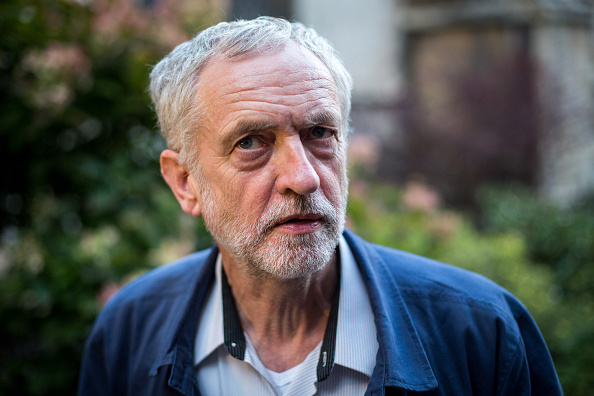Trust Boris to dominate the headlines by reopening that most famous of books, Johnson’s Dictionary. Writing in the Sun, our effortlessly provocative Foreign Secretary swiped at Jeremy Corbyn with this colourful barb: ‘He may be a mutton-headed old mugwump, but he is probably harmless.’ Couched rather incongruously as the reflections of ‘the people’, this comment has left many laughing, but more still scratching their heads. In fact, there’s more to being a ‘mugwump’ than a throw-away jibe.
The word comes from the original New Englanders, the Algonquians, for whom mugquomp meant ‘great chief’. It was a term of respect laden with connotations of nobility. But that presumably wasn’t what Boris had in mind. Instead, ‘mugwump’ properly earned its stripes in English at the American Election of 1884. The Republican James Blaine was up against the Democrat Grover Cleveland. Blaine’s candidacy had annoyed many Republicans, who saw him as an unethical careerist mired in scandal: worst of all, he was cynically operating the so-called ‘spoils system’, whereby political patronage would be rewarded with subsequent office. In this tense setting, the term ‘mugwump’ came to be associated with a group of Republicans who switched party affiliation in order to support the rival Democrat candidate. This group, who asserted their aloofness from the political process, wanted to be seen as ‘Independents’; instead they were dismissed as jumped-up and self-important chieftains, ‘Little Mugwumps’.
Who were these Mugwumps, then? They were very firmly members of the establishment – high-class and high-society big beasts. They formed the traditional business elite, and saw themselves as figures of social and intellectual importance. They were dyed-in-the-wool conservatives, old-family Protestants, believers in Social Darwinism and the Noble Savage. The most famous Mugwump was Mark Twain. As he saw it, for a mugwump the ‘first duty is to his own conscience and honour – the party and the country come second to that, and never first.’
These pontificating men of Republican heritage were criticised for their bet-hedging inability to commit properly to either party. In short, they were fence-sitters. Not sensibly straddling that fence, mind, with one leg on each side. No, wags portrayed the Mugwumps as pathetically impaled, their face (‘mug’) projected over one side, their rump (‘wump’) over the other. Any support from the mug side was instantly undone by a retort from the wump.
Still confused? The following may serve as a quick mugwump checklist. A mugwump is someone who leaves a political party because of a disagreement; a person who supports a candidate of true principle, rather than seeking to be one themselves; or someone who believes themselves to be intellectually more important. A mugwump is also a person who promotes their own political neutrality at all costs. Corbyn, then, is not obviously engaged in mugwumpery: He is so attached to the notion of the Labour Party that the edifice convulses and shifts under the strain of his beliefs; and he promotes himself irresolutely as a party leader and potential Prime Minister, while still claiming to be an anti-establishment voice of the everyman. This is no mugwump. In fact, Corbyn’s Labour has literally done what was most shocking to the original Mugwumps: to reward political support with political positions (in both the shadow cabinet and the House of Lords). Corbyn’s occasional fence-sitting – which may have inspired the remark – arises because his hands are tied by his cabal of risk-averse advisers. But the real Corbyn is no mugwump.
No, to find a true member of the species in the welter of this general election, we must look for someone who refuses to back their leader because of principled divisions; who sees the interests of the country as greater than blind devotion to their party; who, for all their rhetoric, are part of the establishment. Corbyn is a miss – but for a hit, a good place to start looking would be some prominent agitators in the Parliamentary Labour Party.
Boris Johnson is a man who can cut a phrase into a lapidary weapon with the very best of them: Wilde, Trevor-Roper, Madan and (of this parish) Liddle. But I’m not yet sold on this one. Some may make a case for Corbyn being other things: a mugger (gurner), a muggletonian (a devotee of an obscure and misguided cult), muggins (fool), or just a mug (a hirsute-faced sheep). But here we are. For better or worse, mugwump – that plodding, doltish spondee – may well stay stuck to Corbyn.
Dr David Butterfield is the Director of Studies in Classics at Queens’ College, Cambridge
What did Boris mean by ‘mugwump’? Katy Balls, James Forsyth and Sam Leith provide the answers:






Comments